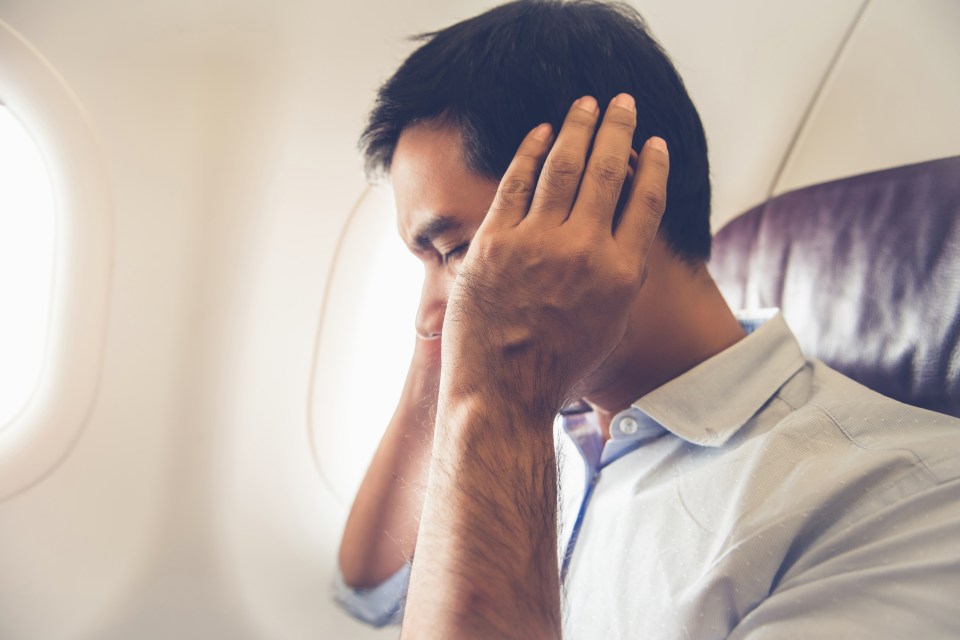EXPERTS have revealed the over-the-counter item travellers should always have with them before a flight – and they cost as little as 30p each.
Having your ears pop taking off and landing when flying is the bane of many a passenger and is commonly known as “airplane ear”.
While it’s not long-lasting, it can be quite painful for some and certainly uncomfortable for many.
The condition is caused when the air pressure in your middle ear and the air pressure in the environment are out of balance.
When a plane ascends into the air or descends into its destination, the air pressure in the cabin changes rapidly with the altitude.
There’s a pocket of air inside your ears that is normally at the same pressure as the air outside, but if the air pressure around you changes, you feel the air pushing on your eardrum.
Your ear has a small tube (called the Eustachian tube) for equalising the air pressure between the inside and outside of the ear.
The tube is opened when you yawn or swallow, and the ‘pop’ you feel is the air equalising.
“Everyone will react differently to pressure changes,” says Nissim Khabie, from Ears, Nose and Throat Speciality Care of Minnesota.
But if your Eustachian tubes are working properly, you might not even experience any discomfort during a flight, according to Brian Taylor, a senior director of audiology for Signia, but you might suffer from problems when things aren’t working properly, such as when you have a cold.
Experts say there is an easy solution to suffering the discomfort.
If you have a cold or suffer from allergies, Taylor recommends you take an over-the-counter decongestant pill about an hour before you board.
High street chemist Boots is currently selling a packet of 12 tablets for £3.65, working out at just 30p each.
If your flight is longer than two hours, an over-the-counter nasal spray can be used about 20 minutes before take-off and again about 30 minutes before landing.
While for flights which are shorter than two hours, one does should be enough.
Taylor said: “The pressure and pain are more pronounced on the descent, so it’s important to have the nasal passages as clear as possible at that time.”
However, anyone with high blood pressure should take care using these meds.
It’s also important to take these steps if you’ve been sick recently.
Another option for those who are generally susceptible to airplane ear is to wear earplugs.
Khabie said: “Specific earplugs designed to help reduce the pressure in the ear canal reduce how quickly the pressure changes.”
Disposable earplugs can usually be bought over the counter.
Other hacks that may help include yawning or chewing gum before take-off and landing.
Taylor said: “For someone with normal Eustachian tube function, yawning, swallowing, or chewing gum might offer some relief during flight.”
He did add that it is normal to experience a mild amount of pressure as the altitude changes.
However, if you do have congestion, Taylor said these steps are unlikely to help and you should opt for over-the-counter interventions like a nasal spray and decongestants.
Staying hydrated can also help too. Passengers need to ensure they drink lots of water while waiting at the gate and maintain that during the flight.
Anyone who is still suffering from airplane ear for longer than about a week should consult a doctor the experts say.
Khabie said: “If ear pain and pressure linger after the flight more than about a week, consult your healthcare professional; sooner if the pain is severe.”
A sleep expert has also revealed the best ways to get some much-needed shut eye during a flight and tackle jet lag.
Meanwhile, a pilot has explained why passengers should never take their shoes off during a flight.















